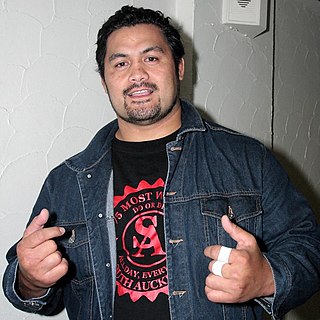A Quote by Lisa Loeb
Sometimes you tell the truth like you're pulling taffy.
Related Quotes
Sometimes I don't tell the truth, which is telling the truth about not telling the truth. I think people don't tell the truth when they're afraid that something bad's going to happen if they tell the truth. I say things all the time that I could really get into trouble for, but they kind of blow over.
The rewriting is always crucial to what I do; whenever I do a scene, I always tell myself that this isn't final and that I can do it again, better. The pacing is probably from experience. I've always liked gradual disclosure. I keep thinking of my rubber-band theory. You have a rubber band that you keep pulling and pulling and pulling, and just at the moment of snapping you release it and start another chapter and start pulling again.
You can tell the truth, but sometimes you can't always be in your face with it. I found a way to tell the truth and put it in a nice, neat package for people to receive it. A lot of times, you have to put it in a nice, neat box with a bow tie, and when they open it, it's the truth. I think people respect that.
According to one account of the New York City schools during the 1950s: The teacher could not technically hit the child, but the old crones found ways of skirting the rules. The push-probe-pull method was popular, in which the teacher would not hit you, but would poke you with her gnarled, witch-like fingers and grab your face like a taffy pull until you screamed. ... The pull-and-choke was also a favorite. It was executed by pulling the compulsory necktie up like a noose, until the errant boy's face turned the school colors.
August Smith is a child telling the truth. Sometimes the truth is he has to listen to the voices of various creatures he's killed speak to him reproachfully, and he shares that with us, because wouldn't we all? Parties abound in this collection and reading it feels like being invited. You can tell Smith wants you there.



































